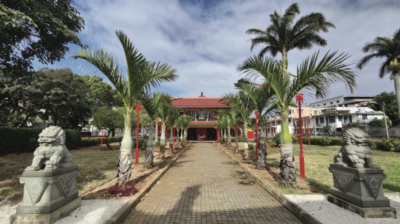Gender Policies and Feminisation of Poverty in Mozambique (2008-2010)
The Government of Mozambique has made achievement of gender equality a major objective in its Poverty Reduction Strategy (PARPPA II), and specifically recognises that the empowerment of women is a decisive factor in the eradication of poverty (GOM 2005). It also recognises that there are gaps in the gathering and analysis of data that is broken down by sex, and that those gaps must be filled (GOM 2005; see also Ibraima 2006).
On the basis of a combination of quantitative and qualitative research methods, the project will i) assess the thesis of an ongoing feminisation of poverty in Mozambique and ii) discuss the implications of the economic and socio-cultural position of women for gender equality and poverty reduction policies in the country.
We will first outline current policies and interventions by the Mozambican government and some of the main donors in the country, and consult existing gender-disaggregated quantitative data to test the viability of the thesis of an ongoing feminisation of poverty on a national level (Report 1). Following the overall assessment, two localised studies based on participatory and qualitative methodologies will contextualise and assess the thesis and its causal assumptions. Particular references will be made to women's role in the informal economy (Report 2) and the coping strategies of poor female headed households (Report 3). The main research questions to be addressed are:
- What are the current Government and donor policies for women empowerment and gender equality in Mozambique, and to what extent do they relate to the thesis of an ongoing process of feminisation of poverty in the country?
- What is the extent and nature of women's participation in the informal economy, and what are the implications of such economic activities for women's poverty and well-being?
- What characterises the coping strategies of female-headed households, and to what extent do they differ from those of male-headed households in terms of intra- and extra-household relationships and allocation of resources?


